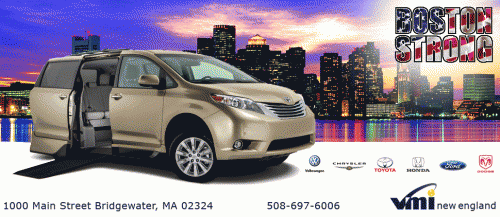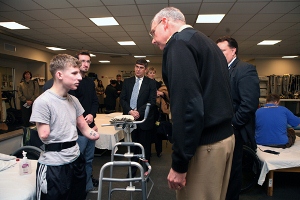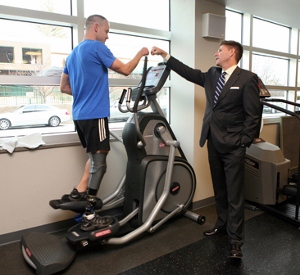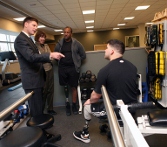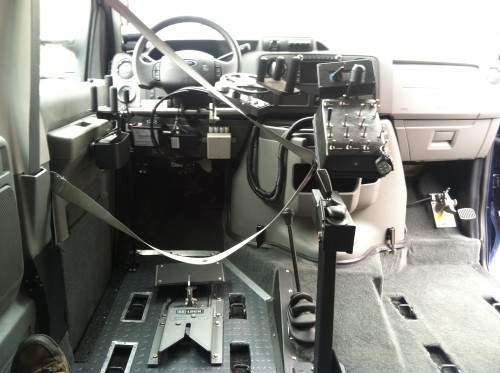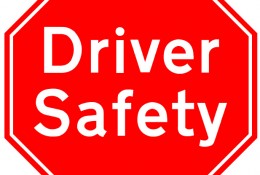Mobility Overview
Enhancing mobility for drivers with disabilities
The Acura Mobility Program is proud to support the mobility needs of drivers and passengers with physical disabilities. When you purchase or lease an Acura vehicle, you will be provided with a cash reimbursement of up to $1,000 of the cost of aftermarket adaptive equipment that is installed on any eligible vehicle.
Program Elements
Acura suggests that you request a copy of the Department of Transportation’s brochure, “Adapting Motor Vehicles for People with Disabilities.”
- Know your state’s driver’s license requirements.
- You may wish to contact a local mobility center to help identify the adaptive equipment that best meets your needs.
- Select the right vehicle by collaborating with your evaluator, as well as a vehicle modification installer and your local Acura dealer before deciding on the best Acura model for you.
- Choose VMi New England Mobility Center a certified qualified equipment installer to modify your vehicle. Take the time to find out about credentials, experience, references, warranty coverage and the services they provide.
- Obtain training on the use of the new equipment. Your equipment dealer and evaluator should provide information and off-road instruction. You will also need to practice driving under the instruction of a qualified driving instructor until you both feel comfortable with your skills.
Program Guidelines
Acura will provide a reimbursement of up to $1,000 to each eligible, original retail client for the expenses incurred to purchase and install qualifying adaptive equipment on any eligible purchased or leased Acura vehicle.
REQUIREMENTS
- Only the original vehicle owner is eligible for reimbursement.
- Modifications must be completed for the original owner or his/her immediate family.
- Only new Acura vehicles retailed or leased in the United States from an authorized Acura dealership are eligible.
- Only one reimbursement request per vehicle.
- Lease vehicle modifications may be subject to written lessor approval. The client is responsible for determining and satisfying lease contract requirements.
- Acura will consider reimbursement for modifications made to vehicles after February 1, 2004.
- The written reimbursement request must be received within 6 months of the adaptive equipment installation.
- Fleet and commercial vehicles are not eligible.
- Any alteration or adaptive equipment that Acura has identified that alters the safety of the vehicle (i.e. seat belt extenders) is not eligible.
ADAPTATIONS, MODIFICATIONS AND EQUIPMENT INSTALLATION
- Qualifying adaptive-equipment or conversion is defined as alterations or adaptive equipment installation that provide to the disabled user convenient access and/or the ability to drive the vehicle.
- Alterations or adaptive-equipment installation require a prescription or medical documentation to be considered for reimbursement.
- Reimbursement requests (invoices) will be compared against the National Highway Traffic Safety Administration (NHTSA) website to verify that the alterer or repair business (individual, partnership or corporation) is registered with NHTSA and that the modifications are on the list of NHTSA exemptions.
- EXCEPTION: Wheelchair or scooter hoists or ramps do not require a prescription, medical documentation or NHTSA exemption verification and NHTSA business registration for reimbursement consideration.
- EXCEPTION: Modifications that “DO NOT” make inoperative any part of a device or element of design that has been installed on or in a motor vehicle in compliance with a Federal Motor Vehicle Safety Standard will not require NHTSA exemption verification and NHTSA business registration for reimbursement consideration.
- The installation of adaptive equipment must have taken place within the time and mileage limits of the New Vehicle Limited Warranty.
- If all conditions are met, Acura will provide up to a $1,000 cash reimbursement. Acura will be the secondary coverage in the case of two or more reimbursement sources.** A reimbursement made by another source such as medical insurance will be subtracted from the client’s original total expense. (Example: Total expense $5,000, Insurance reimbursement $4,000, Client expense $1,000. The client expense of $1,000 will be reviewed and considered for a maximum of $1,000 reimbursement.)
IMPORTANT CLIENT INFORMATION
- The selection of an equipment manufacturer and installer is solely the client’s responsibility. (Acura does not evaluate or endorse any company or supplier involved in adaptive equipment. Mobility equipment warranty, installation warranty and related liabilities are not the responsibility of Acura.)
- Clients can pick up an application at their local Acura dealer, via this website, or through Acura Client Relations.
REIMBURSEMENT DOCUMENTATION AND PROCESS
Documentation required for reimbursement consideration:
- Completed and signed Reimbursement Application
- Proof of Vehicle Sales or Lease Agreement
- Copy of invoice for adaptive-equipment installation and/or vehicle modification and proof of payment
- Copy of state driver’s license to verify that the person is eligible to operate a modified vehicle
- Copy of the prescription or medical documentation
- Name of contributing medical insurance carrier/entity that provides primary support, and policy number
Reimbursements will be processed and mailed within 4 weeks of receipt of all required documentation. Reimbursement requests should be mailed to:
Acura Client Relations
P.O. Box 2964
Torrance, CA 90509-2964
CLIENT RESOURCES
Please call Acura Client Relations with any questions.
Acura
800-382-2238
www.acura.com
National Mobility Equipment Dealers Association (NMEDA)
800-833-0427
www.nmeda.org
National Highway Traffic Safety Administration (NHTSA)
www.nhtsa.dot.gov
To download an application form, click here
Acura reserves the right to modify or terminate this program without notice.
Acura does not assume responsibility for the quality, safety or efficiency of adaptive equipment or installation and cannot guarantee that such modifications comply with applicable government safety standards.
Frequently Asked Questions
Do reimbursements apply to used or fleet vehicles?
No. This program applies to only new Acura vehicles that are retailed or leased in the U.S.
How long will it take me to receive my reimbursement?
Payments will be mailed within 4 weeks of receipt of all required documentation.
What types of adaptive equipment can I obtain reimbursement for?
Acura will consider reimbursement for those modifications that have been approved by the National Highway Transportation Safety Administration (NHTSA). You can find more information on the NHTSA website.
What is the time limit to apply for a reimbursement?
The reimbursement request must be made within 6 months of the adaptive equipment installation.
Where can I get information on adaptive equipment?
Where do I get a reimbursement application?
In addition to the printable .PDF (Acrobat) format version of the form on this website, forms are also available at your local Acura dealer or upon request at Acura Client Relations at 1-800-382-2238.
Are used vehicles included in the Acura mobility assistance program?
Acura has limited the program to original vehicle owners/lessees whose vehicles are within the Manufacturer’s warranty period and who request reimbursement for NHTSA-approved and compliant modifications to their vehicles.
Does the Acura New Vehicle Limited Warranty cover modified vehicles and/or adaptive equipment?
No. The Acura New Vehicle Limited Warranty applies only to the Acura vehicle. It does not include the adaptive equipment, its installation or any other non-original equipment.
Does the installation of adaptive equipment void my warranty?
No, adaptive equipment and modifications unto themselves do not void the New Vehicle Limited Warranty that applies to the Acura product. However, if your vehicle experiences a problem/failure and that problem/failure is determined by Acura to be the direct result of the adaptive equipment and/or its installation, your warranty coverage may be voided for that particular repair. All warranty issues are reviewed on a case-by-case basis.


